The pandemic is affecting Taipei's mayoral election
Taipei's mayoral race is heating up amid the severe Covid-19 outbreak. The ruling Democratic Progressive Party is having a headache as its potential candidate Chen Shih-chung, who is also the commander of the Central Epidemic Command Center, is suffering from a slide in popularity due to his seemingly lousy performance at containing the pandemic in Taiwan. Zaobao correspondent Woon Wei Jong assesses the situation.
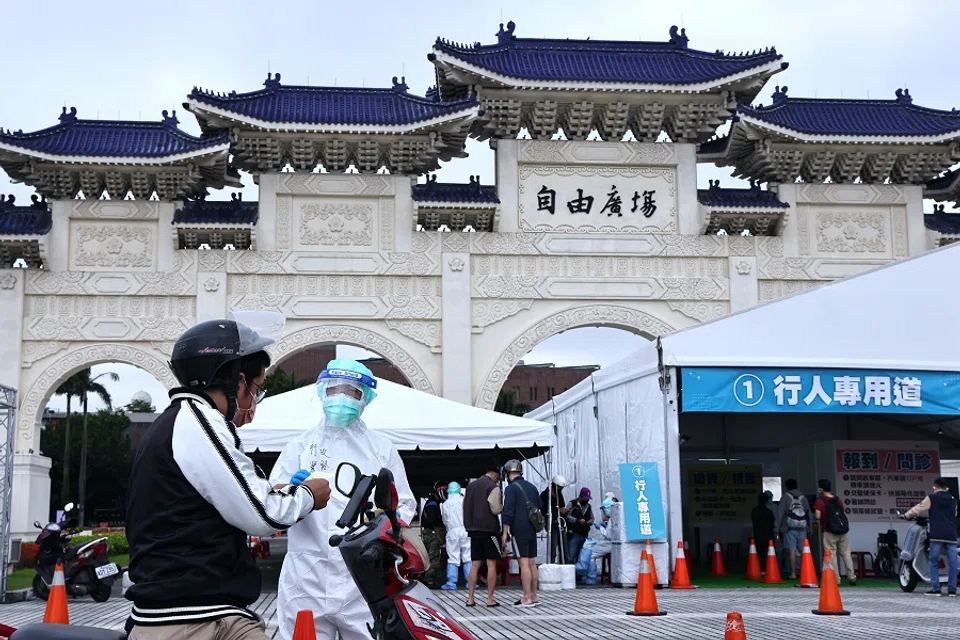
The Covid-19 outbreak in Taiwan has affected Taipei's November mayoral election. Chen Shih-chung, commander of the Central Epidemic Command Center (CECC) and the Democratic Progressive Party (DPP)'s potential candidate for the election, is in a difficult position because of the worsening epidemic situation.
The ruling DPP is also in a dilemma - whether or not it supports Chen's candidacy, the overall electoral situation of Taiwan's nine-in-one (九合一) local elections could be adversely impacted for the DPP. Current affairs commentators told Zaobao that Chen's fading halo makes the battle for Taipei even more unpredictable.
Kuomintang (KMT) candidate and pan-Blue coalition rising star Wayne Chiang Wan-an also faces obstacles in the Taipei mayoral race despite his initial lead in the polls. On the other hand, the high-profile Taipei deputy mayor Huang Shan-shan of the People First Party, is quickly gaining ground under the pan-Green's strategy to support her so as to undermine Chiang's bid for the mayor role.
Chen Shih-chung's popularity declining
Amid the surge in Taiwan's local Covid-19 infections, the CECC has been accused of being behind in deployment, unprepared and disorganised, which has brewed public discontent and led to a plunge in Chen's popularity rating.
According to a poll by Taiwan Public Opinion Foundation released on 20 May, respondents rated Chen at an average of 59.53 points, his first ever dissatisfactory score. Compared with his score of 70.22 in April this year and 84.16 in February 2020, it is clear that his heyday is over.
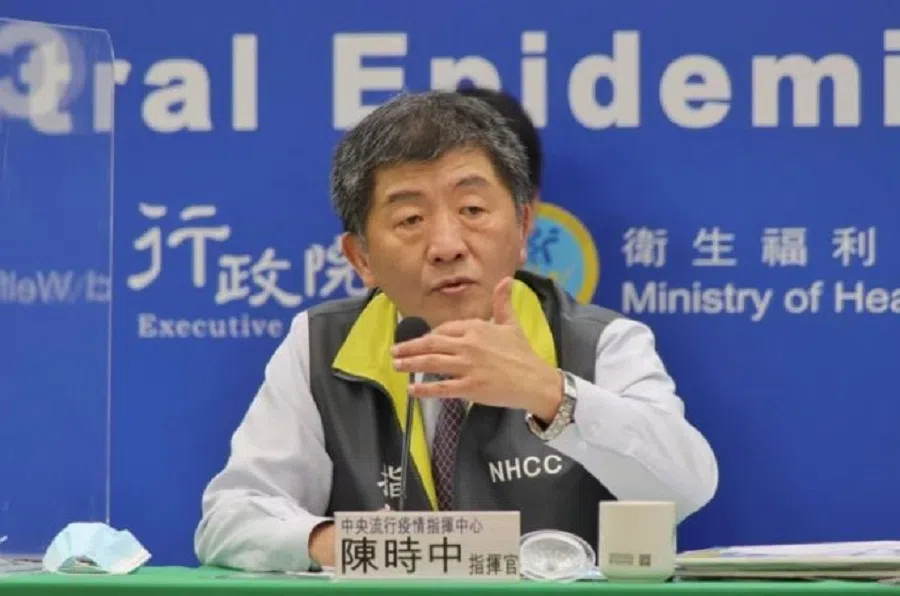
A concrete example of Chen's declining popularity can be seen during his visit to a Taipei hospital on 11 May when members of the public asked him to quit. On 13 May, nearly 100 taxi drivers protested on the street, slamming Chen as incapable and calling for his resignation.
Chen was previously lauded as the strongest contender for the nine-in-one elections this November because of his stellar performance in containing the pandemic. Now, his poor performance has made him a hot potato and a liability to the DPP's election performance.
The DPP is hopeful that the pandemic will ease within two months and is determined to support Chen and "soldier on".
DDP still holding out hope
However, various signs and analyses point to the fact that Taiwan President and DPP chair Tsai Ing-wen, who holds the right to nominate candidates, is still in favour of having Chen represent the DPP at the Taipei mayoral election.
Wu Tzu-chia, chair of Taiwan news portal Formosa, who is familiar with the DPP's electoral situation, told Zaobao that based on Tsai's recent crisis management of Taiwan's anti-Covid policy and considerations of intra-party factional competition, the DPP is indeed in the process of "saving Chen Shih-chung". The DPP is hopeful that the pandemic will ease within two months and is determined to support Chen and "soldier on".
He said frankly that the underlying consideration behind "saving Chen" is to stabilise the DPP's overall nine-in-one electoral race.
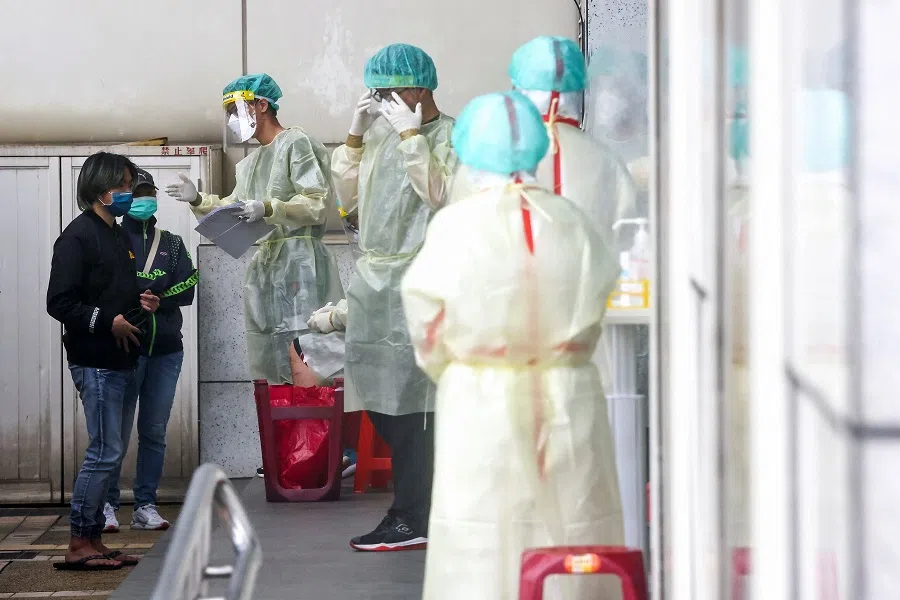
He explained, "If they give up on him now, would it mean that they have admitted defeat and created a marker for a failed election? The DPP has never once admitted that its pandemic containment efforts have failed, only reiterating that it would work harder to fill the gaps. This is because they want to avoid triggering a political domino effect by admitting their failure in controlling the pandemic. And this is why everyone has to weather this together."
"If the pandemic drags on for a long time and the death toll soars, Chen Shih-chung will certainly become the weakest link and the last straw that could bring down the ruling DPP." - Niu Tse-hsun, current affairs commentator and professor at the Chinese Culture University
Niu Tse-hsun, current affairs commentator and professor at the Chinese Culture University's advertising department, also told Zaobao that the DPP is not giving up on Chen yet. If the pandemic situation eases by July or August, he still stands a chance to run for Taipei mayor. However, the shadow of his poor pandemic containment efforts will follow him if he joins the electoral race, and could even become the biggest flaw in the pan-Green coalition's electoral situation.
Niu explained, "If the pandemic drags on for a long time and the death toll soars, Chen Shih-chung will certainly become the weakest link and the last straw that could bring down the ruling DPP. But if the pandemic eases, it would be anyone's game. In terms of performance against the pandemic and policy evaluation, to each their own."
Another poll released by CNEWS on 20 May shows that the Taipei mayoral race has clearly become a three-way election. Chiang received 31.9% of support, Chen 26.2%, and Huang 24.8%. Support for Chiang has been declining despite his initial lead, while Huang is gradually catching up.
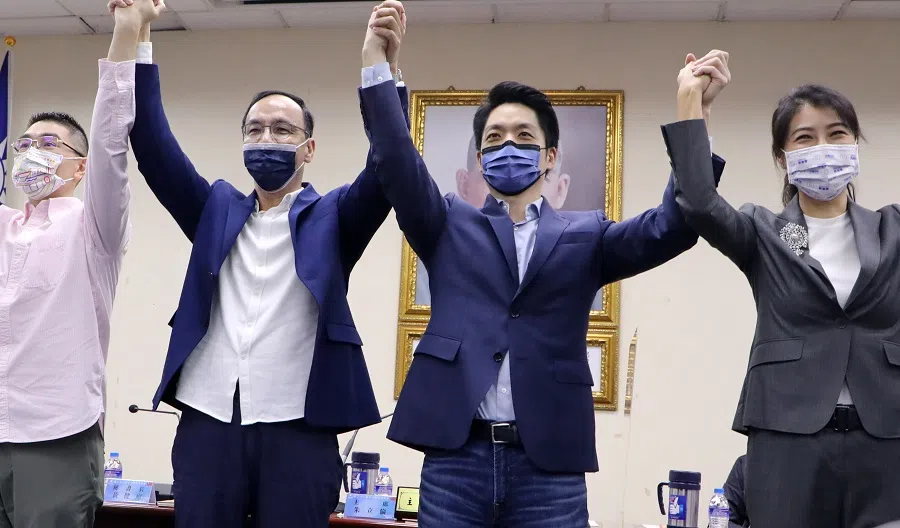
Chiang and Huang recently tested positive for Covid-19, but during their quarantine, they were able to show their approachable and human side by interacting with netizens daily via live stream.
When Huang's quarantine ended on 19 May, she went straight to the screening station at the Chiang Kai-shek Memorial Hall to inspect its operation.
After Chiang's quarantine ended in the early hours of 25 May, he received his call of duty from the KMT's central standing committee and was officially announced as their candidate for Taipei mayor.
Focus on candidates' backgrounds
Attention is once again focused on the backgrounds of the three candidates for Taipei mayor, but it remains to be seen whether it will become an advantage.
The 43-year-old Chiang is a great-grandson of late President Chiang Kai-shek, and graduated from the US with a doctorate in law; 52-year-old Huang is a lawyer, and her elder brother Huang Shu-kuang was a navy admiral and the former Chief of the General Staff of the Republic of China Armed Forces; and 68-year-old Chen Shih-chung is a dentist, his father Chen Chi-yen was a law professor in National Taiwan University who taught President Tsai.
... for the KMT to nominate a candidate for a key constituency while the pandemic is raging shows its disconnection from the ground, and leaves a very poor impression. - Wu Tzu-chia, chair of Taiwan news portal Formosa
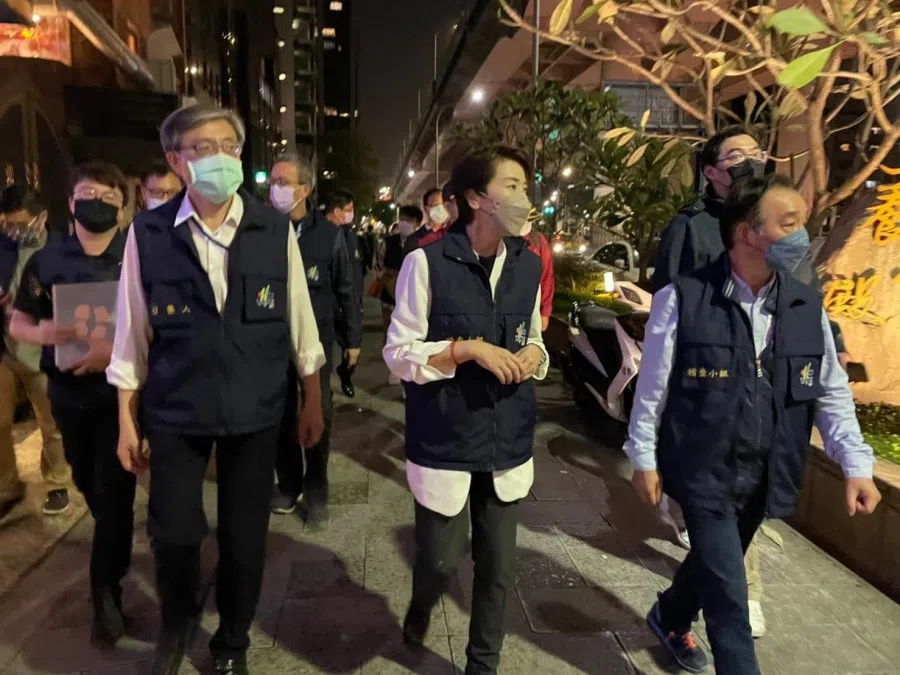
In terms of the timing of the KMT's announcement of Chiang's candidacy, the public believes that the KMT is showing its cards first because it feels that the time is right. As for Chen and Huang, the latter being the second in charge of Taipei's pandemic efforts, there is the pressure of being labelled as "also-rans" who would likely lose the contest.
Nominations for the nine-in-one local elections will close on 2 September and the elections will be held on 26 November. However, Wu said that for the KMT to nominate a candidate for a key constituency while the pandemic is raging shows its disconnection from the ground, and leaves a very poor impression.
Niu commented that to change public opinion, Chiang has to come up with a comprehensive pandemic plan to address the chaotic pandemic leadership with a series of winning messages, as well as concrete solutions that people can identify with.
He also felt that Chiang has to change his temperate and mild style and be more aggressive to satisfy voters' appetite, raise his popularity and open up his voter base.
Recently, the pan-Green coalition has been supporting Huang and criticising Chiang, resulting in a sustained boost in Huang's support of over 20%. However, as part of the pan-Blue coalition, Huang has not just attracted blue votes, but is also starting to nibble at the green voter base.
Indeed, the three standout candidates make it hard to predict the election result. By Niu's assessment, the contest for Taipei mayor will be guided by the outcome of the pandemic and how well the candidates address various other issues.
Prequel to presidential election
The year-end election is also seen as a prequel to the presidential election and Legislative Yuan election in 2024. Wu believes this tsunami wave of the pandemic might affect the appointments of the ruling party.
He observed that former Vice-President Chen Chien-jen recently took two exclusive, high-profile interviews with international media, where he commented on Taiwan's pandemic efforts. Chen also took the seat next to the president at a pandemic consultative meeting at the president's office.
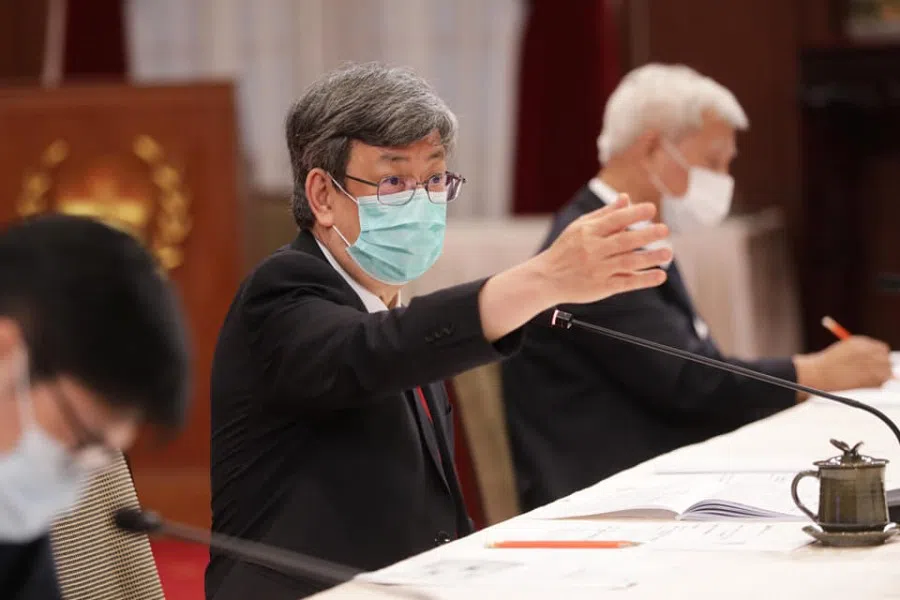
Wu assesses that Tsai is setting the stage for Chen in a big way, and may possibly make him premier - president of the Executive Yuan - or even simultaneously head of pandemic efforts, to build up popularity and bid for a nomination within the party for the presidential primaries. He noted, "However, this is a dangerous gambit, as the 'area of criticism' would get bigger. If he does well, his reputation would surpass popular William Lai [the current vice-president], but he may also end up stepping down after taking multiple hits."
Wu also said that the central government's poor planning and handling of the pandemic have benefited the heads of local government, who have received good ratings based on their handling of the pandemic and high exposure, and this overall trend is good for the KMT, which holds the reins in the local governments.
However, recently the KMT's momentum has been low. Also, the messy nomination for Taoyuan City has not been resolved - the leadership style of party chair Eric Chu is not communicative and collaborative, which has led to disillusionment among the younger members of the party, and dissatisfaction among the people. Whether the KMT can clean up the situation will also affect its votes in Taipei, New Taipei City and Taoyuan, as well as its overall popularity.
Related: Will the great-grandson of Chiang Kai-shek be the next Taipei mayor and Taiwan leader? | Are Taiwan's DPP politicians fighting to be blacklisted by Beijing? | Taiwan's algal reef referendum: A proxy for political battle? | Chinese academic: A 'reunification by force' would be Taiwan's last | How is mainland China planning to achieve reunification with Taiwan, when a common history no longer holds the same significance?





